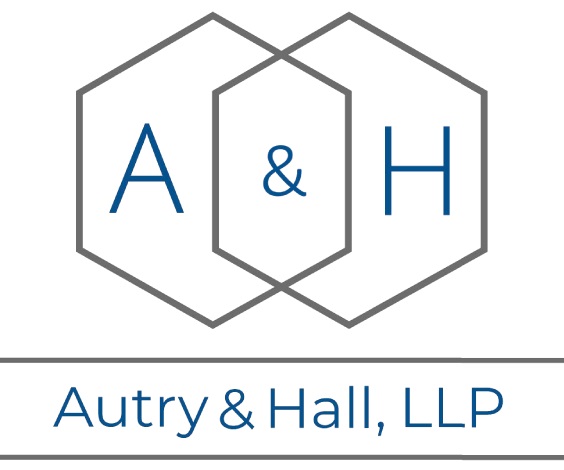Cooperatives play a unique role in the U.S. economy by prioritizing the needs of their members over maximizing profits for shareholders. Subchapter T of the U.S. Internal Revenue Code (IRC) provides a tax framework that allows cooperatives to benefit from unique tax advantages, such as the ability to deduct patronage refunds from taxable income. However, to qualify for and maintain this status, cooperatives must meet specific legal and operational requirements. This post outlines the requirements cooperatives must satisfy to remain compliant with the Subchapter and provides the best status for maintaining cooperative status for tax purposes.
A. Understanding Subchapter T
Subchapter T of the IRC (Sections 1381–1388) governs the taxation of cooperatives. It applies to a broad range of cooperatives, including worker cooperatives, agricultural cooperatives, and consumer cooperatives, among others. The key feature of Subchapter T is that it allows cooperatives to deduct patronage refunds distributed to members, thus reducing the cooperative’s taxable income. However, cooperatives must meet certain requirements to maintain their status under Subchapter T.
B. Key Requirements for Maintaining Subchapter T Status
1. Operate on a Cooperative Basis
To qualify under Subchapter T, a cooperative must operate on a cooperative basis. Because there is no specific federal statute or regulation on point, whether a cooperative operates on a cooperative basis is determined by three principles established by case law and IRS guidance:
- Democratic Control: Members must have control over the cooperative’s operations and decision-making processes, typically through the “one member, one vote” principle, regardless of the size of their financial investment.
- Subordination of Capital: The cooperative must prioritize member benefits over capital investment. This means profits should be distributed primarily based on member participation (patronage) rather than on the basis of members’ capital contributions.
- Equitable Allocation of Benefits: Earnings must be allocated and distributed to members in proportion to their business with the cooperative (patronage activity).
These principles distinguish cooperatives from traditional for-profit businesses, where control and profit distribution are tied to capital investment and ownership.
2. Provide Substantial Services to Members
A cooperative must primarily serve its members rather than non-members. The IRS evaluates whether the cooperative’s activities are significantly directed toward meeting the needs of its members.
- Member Transactions: A majority of the cooperative’s income should come from transactions with members, as opposed to non-members.
- Member Benefits: The cooperative’s activities should directly benefit its members, either by providing goods and services or by distributing earnings.
If a cooperative engages in significant non-member activity, it may jeopardize its Subchapter T status
3. Distribute Patronage Refunds
To benefit from Subchapter T’s tax advantages, a cooperative must distribute patronage refunds to members. Patronage refunds are amounts returned to members based on their participation in the cooperative’s business, such as purchases, labor, or services provided.
- Allocation Based on Patronage: Refunds must be distributed in proportion to the business each member conducts with the cooperative, and not on the basis of capital contributions.
- Written Notice: The cooperative must issue a written notice of allocation to members, detailing the amount of the patronage refund.
The IRS requires that at least 20% of each patronage refund for each year be distributed in cash. The cooperative has discretion as to whether to distribute a higher percentage in cash, or to allocate the remainder to members’ patronage accounts as equity retained in the cooperative.
4. Follow IRS Filing and Reporting Requirements
Cooperatives must adhere to specific tax filing and reporting requirements under Subchapter T:
- File Form 1120-C: Cooperatives must file Form 1120-C, the U.S. Income Tax Return for Cooperative Associations, to report their income, deductions, and allocations.
- Maintain Accurate Records: Detailed records of member transactions, patronage allocations, and non-member activities are essential for demonstrating compliance.
- Comply with Allocation Rules: The IRS scrutinizes the allocation and timing of patronage refunds. Cooperatives must ensure refunds are properly documented and distributed within the prescribed timeframes.
- Cooperatives Organized as LLCs: A cooperative organized as an LLC desiring to be taxed as a Subchapter T cooperative would have the LLC elect to be taxed as a corporation in order to file Form 1120-C.
5. Avoid Prohibited Distributions
Under Subchapter T, cooperatives are prohibited from distributing dividends on common stock or other forms of equity that prioritize capital returns over member benefits. While cooperatives can issue preferred stock to raise capital, dividends on this stock must not undermine the cooperative’s commitment to the subordination of capital.
6. Maintain Cooperative Principles
The IRS may examine whether a cooperative adheres to cooperative principles as part of its operations. These principles, often derived from the Rochdale Principles, include:
- Voluntary Membership: Members should join the cooperative voluntarily and without coercion.
- Education and Training: Cooperatives should educate members about cooperative principles and practices.
- Concern for Community: Cooperatives are expected to contribute positively to their communities.
While these principles are not legally binding, they demonstrate the cooperative’s commitment to its mission and can strengthen its case for maintaining Subchapter T status.
C. Benefits of Subchapter T Status
Cooperatives that comply with Subchapter T enjoy several significant tax advantages:
- Deductibility of Patronage Refunds: Patronage refunds are deductible from the cooperative’s taxable income, reducing its overall tax liability. This avoids the double taxation on dividends faced by normal corporations (with the corporation paying income tax on profits used for dividends, and shareholders paying tax on any dividends received).
- Member-Level Taxation: Members pay taxes on patronage refunds as part of their individual income.
- Reinvestment Opportunities: Cooperatives can retain a portion of patronage refunds as member equity, which can be reinvested into the business.
These benefits make Subchapter T an attractive option for cooperatives, enabling them to operate efficiently while providing direct financial benefits to members. Avoiding double taxation provides an incentive for formation of member-focused cooperatives as opposed to profit-driven corporations.
D. Best Practices for Maintaining Subchapter T Status
To ensure compliance with Subchapter T requirements, we recommend that cooperatives adopt the following best practices:
1. Develop Articles and Bylaws That Clearly Incorporate Cooperative Principles and Requirements
- Ensure the cooperative’s articles of incorporation and bylaws explicitly outline its adherence to cooperative principles, including democratic control, patronage-based allocation, and the subordination of capital.
- Specify in the articles and bylaws that the cooperative will comply with Subchapter T
- Regularly review and update bylaws to reflect changes in operations or legal requirements.
- Consult with counsel experienced with cooperatives before using a form of governance other than “one member, one vote”
2. Maintain Detailed Records
- Keep accurate records of member transactions, patronage refunds, and non-member activities.
- Document board meetings, member votes, and other governance activities to demonstrate democratic control.
3. Educate Members, Managers, and Directors
- Regularly provide information to members on cooperative principles, their rights and responsibilities, and the importance of patronage activity.
- Engage members in governance processes to strengthen their participation.
- Provide periodic training for managers and board members on the importance of compliance with Subchapter T and maintaining cooperative requirements.
4. Monitor Non-Member Activity
- Limit non-member transactions to ensure the cooperative’s primary focus remains on serving its members.
- If non-member activity is significant, consider separating it into a subsidiary to avoid jeopardizing Subchapter T status.
5. Consult Legal and Tax Professionals
- Work with attorneys and tax advisors familiar with Subchapter T to ensure compliance with IRS regulations.
- Conduct periodic audits to identify and address potential compliance issues
E. Conclusion
Subchapter T of the U.S. Internal Revenue Code provides valuable tax benefits to cooperatives. However, compliance is an ongoing process that requires diligence, transparency, and member engagement. By adopting best practices and seeking professional guidance, cooperatives can ensure long-term success while staying true to their mission of empowering members and fostering economic equity.
For more information about the information contained in this post, please contact Roland Hall at [email protected].
This post is for informational purposes only and does not constitute legal advice. Viewing this content does not create an attorney-client relationship.

